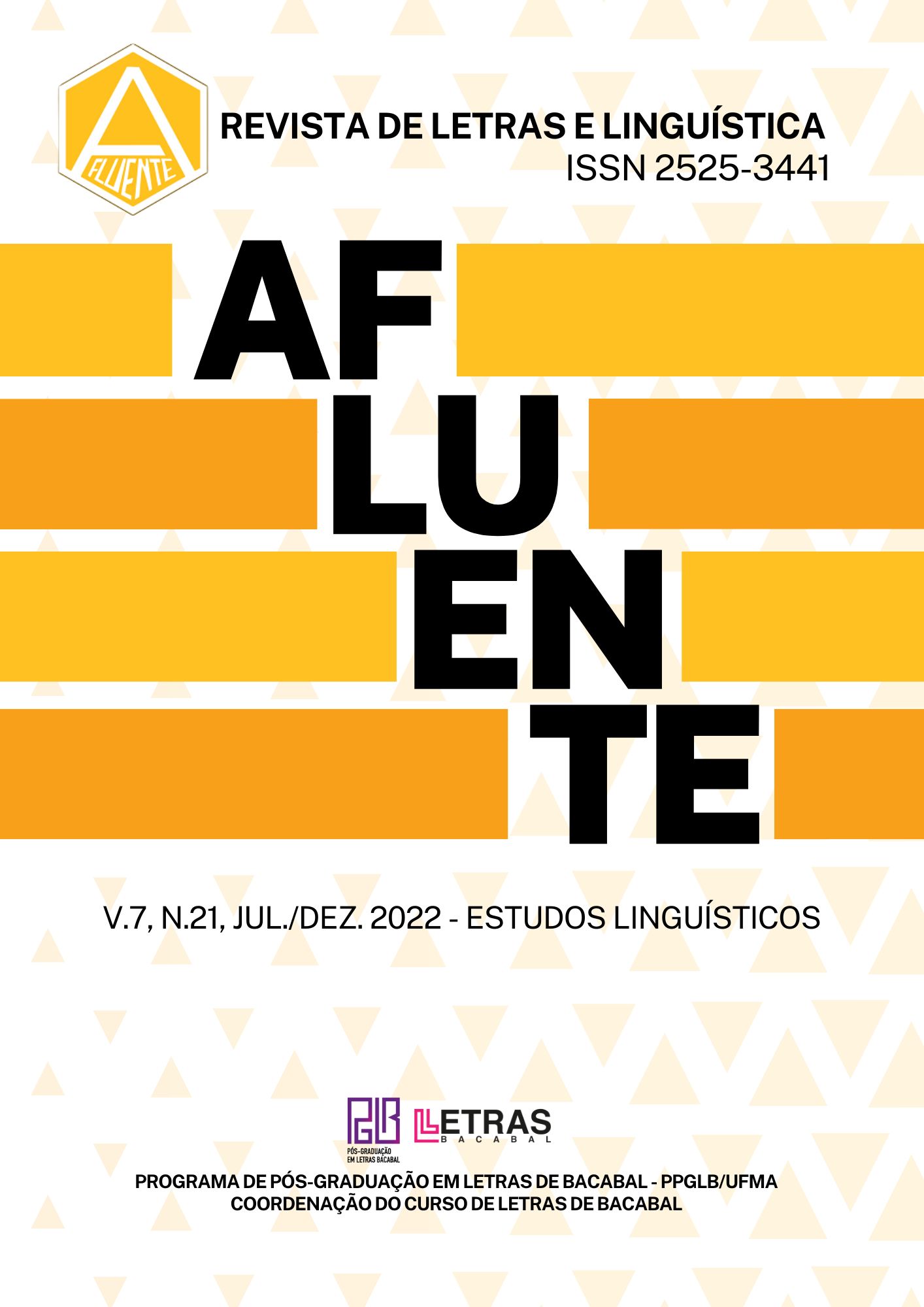MODALIZAÇÃO E ARGUMENTAÇÃO
a modalização como estratégia para a construção do discurso argumentativo no gênero editorial
DOI:
https://doi.org/10.18764/2525-3441v7n21.2022.17Palavras-chave:
Argumentação, Discurso argumentativo, Gênero editorial, ModalizaçãoResumo
Buscando saber de que forma o uso de modalização contribui para a construção do discurso argumentativo no gênero editorial, neste artigo, objetivamos analisar o uso de modalizações lógicas, deônticas e apreciativas no discurso argumentativo de editorial, à luz da Análise do Discurso, do Interacionismo Sociodiscursivo e do estudo da Argumentação. Para tanto, fundamentamo-nos nas noções de Argumentação, com os estudos de Amossy (2011), Charaudeau (2016) e Fiorin (2016); nas compreensões sobre o gênero editorial de Arbex Jr. (1992), Koche, Boff e Marinello (2014) e Pereira e Rocha (2006) e nas formulações sobre modalização de Coracini (1991) e Bronckart (2007). Como corpus, recorremos ao editorial Justiça Conveniente do jornal Folha de S. Paulo, publicado em 13 de julho de 2020. Quanto à abordagem metodológica, recorremos à pesquisa bibliográfica e ao método de análise interpretativista, numa abordagem qualitativa. Como resultados, constatamos o uso de modalizações lógicas, deônticas e apreciativas, que, em princípio, expressam a subjetividade do sujeito-enunciador, mas também podem criar efeito de objetividade. Com elas, aquele que argumenta avalia, aprecia, critica, evidencia, explica, constata, contradiz fatos, se aproxima ou se afasta de enunciados, defende, sugere e impõe pensamentos. Assim, as modalizações mostram-se como verdadeiras estratégias argumentativas, ajudando na construção do discurso argumentativo de editorial, uma vez que por meio delas o sujeito-enunciador se insere dentro do enunciado, de forma mais ou menos acentuada, para defender sua posição, seus interesses, de forma a persuadir o sujeito-enunciatário.
Downloads
Referências
ABREU, Antônio Suarez. A arte de argumentar: gerenciando razão e emoção. São Paulo: Ateliê, 2001.
ARBEX JÚNIOR, A Editorial. In: MELO, José Marques de (org.). Gêneros jornalísticos na Folha de São Paulo. São Paulo: FTD, 1992.
AMOSSY, Ruth. Argumentação e Análise do Discurso: perspectivas teóricas e recortes disciplinares. Tradução de Eduardo Lopes Piris e Moisés Olímpio Ferreira. EID&A - Revista Eletrônica de Estudos Integrados em Discurso e Argumentação, Ilhéus, n.1, p. 129-144, nov. 2011.
BRONCKART, J-P. Atividade de linguagem, textos e discurso: por um interacionismo sociodiscursivo. São Paulo: EDUC, 2007.
CARVALHO, Pietra. “Rachadinha”, relação com família e prisão: entenda o caso Queiroz. CNN Brasil, São Paulo, 19 jun 2020.
Disponível em: https://www.cnnbrasil.com.br/amp/politica/2020/06/19/rachadinha-relacao-com-familia-bolsonaro-e-prisao-entenda-o-caso-queiroz. Acesso 08 set 2020.
CHARAUDEAU, Patrick. Linguagem e discurso: modos de organização. Coord. Da trad. CORREA, Ângela M. S.; MACHADO, Ida Lúcia. São Paulo: Contexto, 2016.
COM crescimento digital, Folha lidera circulação total entre jornais brasileiros. Folha de S. Paulo, São Paulo, 21 abr. 2019.
Disponível em: https://www1.folha.uol.com.br/poder/2019/04/com-crescimento-digital-folha-lidera-circulacao-total-entre-jornais-brasileiros.shtml. Acesso em 20 jul. 2020.
CORACINI, Maria José Rodrigues Faria. Um fazer persuasivo: o discurso subjetivo da ciência. -1. ed. São Paulo: Educ: Campinas, SP: Pontes, 1991.
FIORIN, José Luís. Argumentação. 1 Ed. São Paulo: Contexto, 2016.
JUSTIÇA conveniente. Folha de S. Paulo, São Paulo, 13 jul. 2020.
Disponível em: https://www1.folha.uol.com.br/opiniao/2020/07/justica-conveniente.shtml. Acesso em: 14 jul. 2020.
KOCHE, V. S.; BOFF, O. M. B.; MARINELLO, A. F. Leitura e produção textual: Gêneros textuais do argumentar e do expor. 6. ed. Petrópolis, RJ: Vozes, 2014.
PEREIRA, R. M. F; ROCHA, T. F. Discurso Midiático: análise retórico-jornalística do gênero editorial. 2006. 93 f. (Monografia)-Universidade Federal de Alagoas Maceió, 2006.
Disponível em: http://www.bocc.ubi.pt/pag/pereira-rose-mary-rocha-thais-discurso-midiatico.pdf. Acesso em: 12 jul. 2020.
PERELMAN, Chaïm; OLBRECHTS-TYTECA, Lucie. Tratado de argumentação. Porto Alegre: Instituto Piaget, 1999.
PRESTES, M. L. M. A pesquisa e a construção do conhecimento científico: do planejamento aos textos, da escola à academia. 4 ed. São Paulo: Rêspel, 2012.
Downloads
Publicado
Como Citar
Edição
Seção
Licença
Copyright (c) 2022 Afluente: Revista de Letras e Linguística

Este trabalho está licenciado sob uma licença Creative Commons Attribution 4.0 International License.
Direitos autorais Afluente: Revista Eletrônica de Letras e Linguística
Este trabalho está licenciado com uma Licença Creative Commons - Atribuição 4.0 Internacional.














